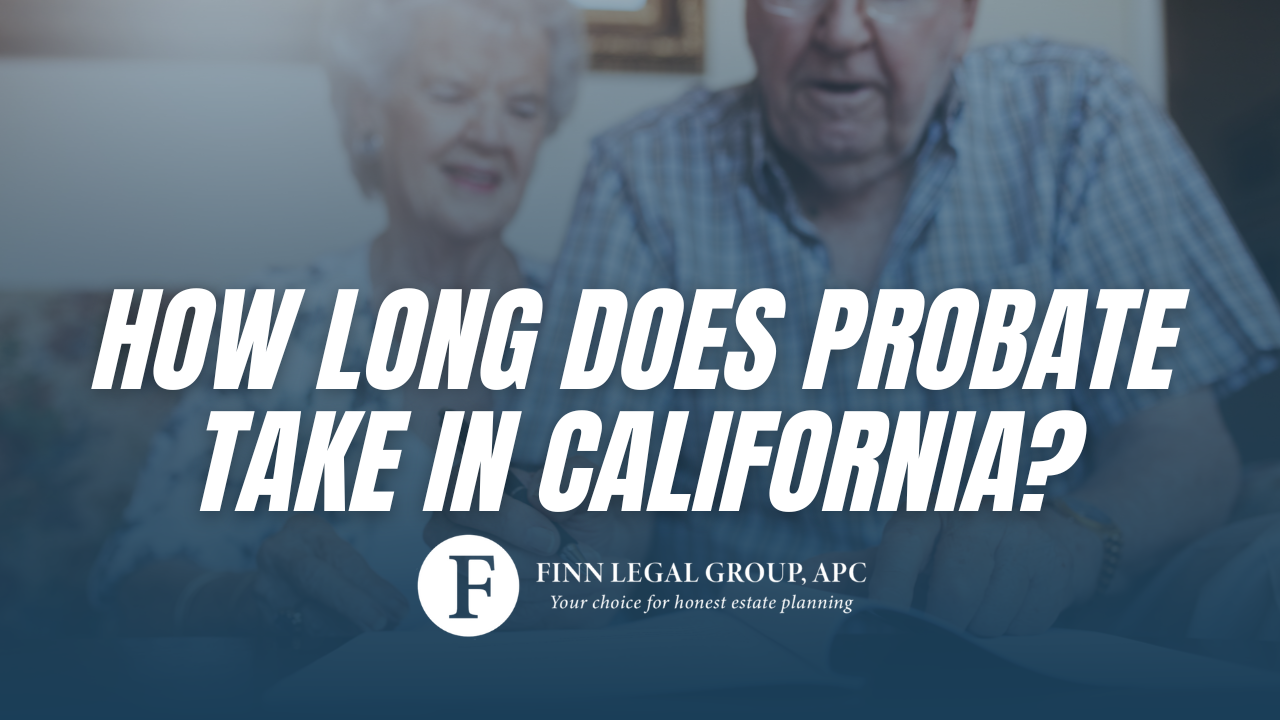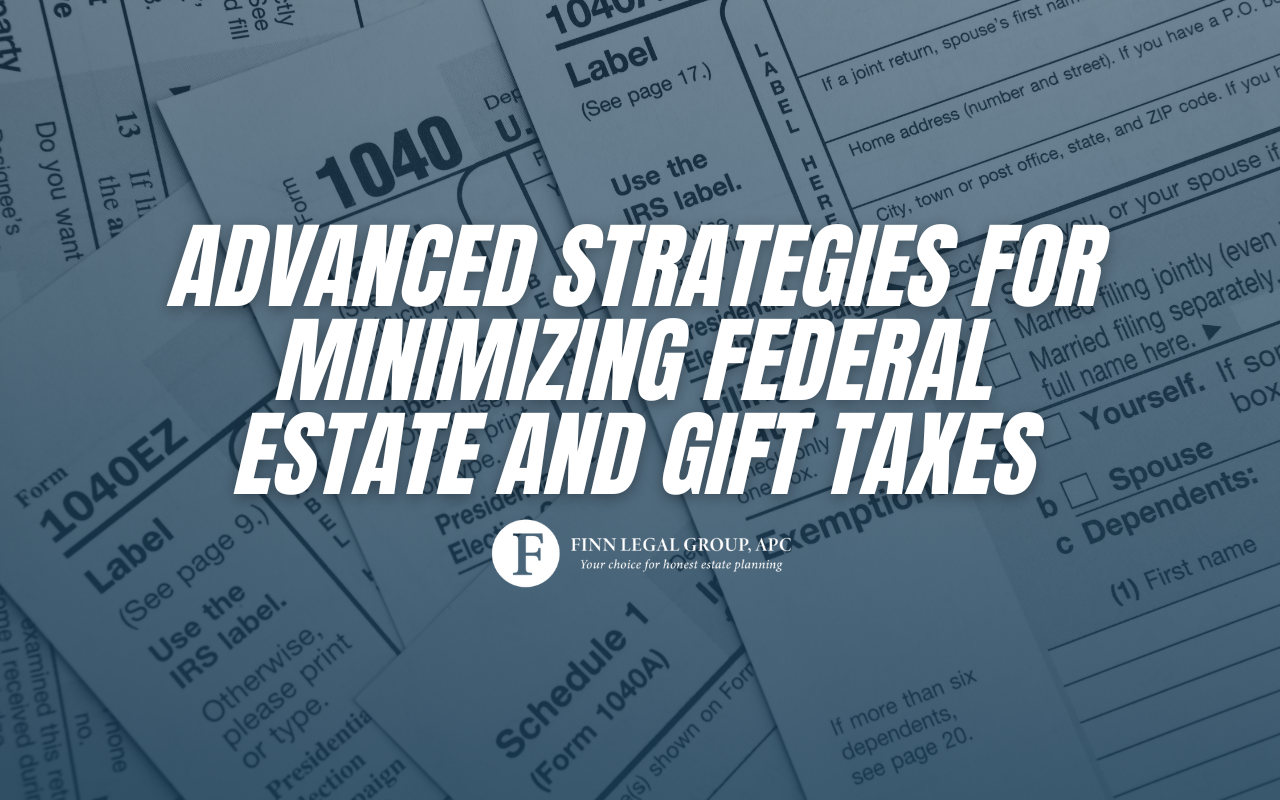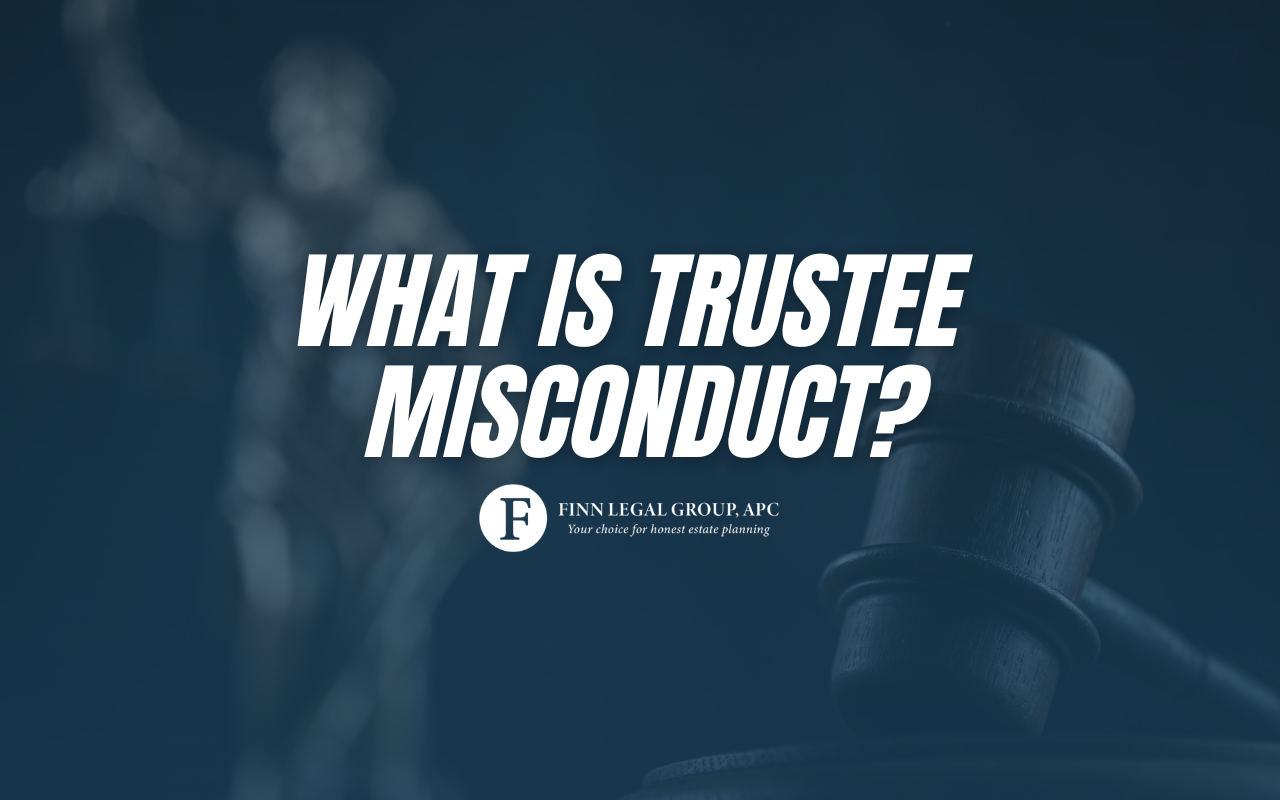Understanding Probate: How Long Does Probate Take in California?
When navigating California’s probate process, you’re likely seeking clarity on one pressing issue: how long does probate take in California? The process typically unfolds over 9 to 18 months, subject to specific factors such as estate complexity, legal hurdles, and judicial efficiency. Our article aims to demystify the timeline, exploring variables that can prolong probate and providing tips for a smoother legal journey.
Key Takeaways
- The California probate process usually takes 9 to 18 months but can be longer due to factors such as estate complexity, the efficiency of the personal representative, and court delays.
- Personal representatives play a critical role in probate speed; their efficiency, legal knowledge, and meticulous document handling can significantly influence the duration of probate.
- For small estates, California law offers simplified probate procedures that can expedite property transfer without extensive hearings, reducing costs and timeframes.
Navigating the California Probate Timeline
Probate is a legal procedure necessary for validating a deceased person’s will and lawfully distributing their assets. Have you ever wondered about the duration of the probate process in California? The answer varies based on several factors. The probate process in California typically takes 9 to 18 months, but this duration can vary significantly depending on several factors. Having a valid will can expedite the process, but even then, the timeline can fluctuate depending on the complexity of the estate and the efficiency of the personal representative.
In some instances, particularly for large or complex estates dealing with estate taxes and other financial matters, the probate process may span 12 to 18 months. Despite the varying timelines, it is important to remember that probate is a legal process necessitating careful handling to guarantee the decedent’s assets are distributed lawfully and fairly. One common question is, how long does probate take? The answer depends on the specific circumstances of each case.
Decoding the Duration: A Probate Timeline Breakdown
Probate in California is not a one-step process. It involves several stages, each of which plays a critical role in the overall duration of probate. The process starts with:
- Filing of petitions and providing notice to relevant parties.
- Preparation of an inventory and appraisal of the estate assets.
- In some cases, the sale of real estate.
Each of these stages has its own timeline, contributing to the overall duration of the probate process.
For instance, the time from the initial filings to the distribution of assets can range from 9 to 18 months. However, the sale of real estate, which is subject to specific regulations, can significantly alter this timeline. The pricing of the property and the time limits for completing the sale can extend the probate timeline, delaying the distribution of the decedent’s assets.
Identifying Factors That Affect Probate Length
While the stages of probate contribute to its length, other factors can significantly impact the duration of the process. For example, the size of an estate can influence the probate length. Estates with high-value or complex assets may experience prolonged probate proceedings, making it advisable to consult a probate lawyer to navigate the complexities.
Moreover, court delays can also affect the duration of the probate process. These can arise from:
- paperwork errors
- state-mandated periods for creditors to make claims
- complex assets that are challenging to sell
- conflicts among beneficiaries
- delays within the court system itself
The first probate hearing is a crucial milestone in this timeline, marking the start of the formal probate proceedings.
The Role of a Personal Representative in Probate Speed
The personal representative plays a key role in the probate process. Their responsibilities include:
- Overseeing the management of the estate’s assets
- Collecting and inventorying assets
- Settling the estate’s debts and taxes
- Ongoing management of assets during the probate proceedings
The efficiency and understanding of the personal representative can significantly affect the speed of probate.
A savvy personal representative can accelerate the probate process by:
- Enlisting the services of a probate attorney
- Adhering to professional legal guidance
- Ensuring all essential documents are meticulously prepared and submitted to the court within the designated timeframe
By following these steps, the personal representative can efficiently navigate the legal complexities and potentially shorten the probate timeline where the decedent resided.
Duties of the Executor Appointed by the Court
The executor, appointed by the court, holds a key position in the probate process. They are entrusted with the management of the estate, settlement of the estate’s debts and taxes, and distribution of the assets to the beneficiaries as per the will or state law. This involves careful estate management, including collection and documentation of the deceased individual’s assets.
In addition to managing the estate’s assets, the executor is also responsible for the estate’s financial matters. This includes settling any outstanding debts and taxes. It is the executor’s responsibility to ensure that these obligations are met before distributing the remaining assets to the beneficiaries.
The executor allocates the decedent’s assets to beneficiaries by submitting a final account, petition for distribution, and the death certificate once all the estate’s debts and taxes have been settled.
Legal Requirements and Court Supervision
Probate in California involves court supervision, which is a mandatory part of the process. The need for formal probate is determined by the size of the estate subject to probate. Court supervision ensures that the process is carried out lawfully, with two main hearings typically taking place during the probate process. The first of these hearings is where the court designates the personal representative responsible for managing the estate, and this is when probate take in California occurs.
The second important hearing is the final hearing. This hearing is designed to facilitate public challenges to the petition or contest the validity of the will. It also ensures the lawful administration of the estate. Throughout the probate process, there are several legal prerequisites that must be fulfilled, such as selecting an estate representative, fulfilling representative duties, and providing written notice to beneficiaries before asset sales.
Understanding Court Appointments and Hearings
Court appointments and hearings play a crucial role in probate cases. The probate process involves the court overseeing the proper management and distribution of the estate, which includes scheduling reviews of petitions, gathering evidence, and appointing a personal representative responsible for settling the decedent’s estate. Court appointments can consist of the designation of a personal representative or administrator to supervise the probate process, and in some cases, the assignment of a conservator to attend to an adult who lacks the capacity for self-care.
During a court hearing, the judge validates the petition and will, subsequently bestowing authority upon the designated individual to oversee the estate. This process is not without potential challenges. If objections to claims arise, the court will review the evidence presented and render a decision. The executor is obligated to provide an account of their actions in managing the estate, and they must be fully prepared to address any potential challenges related to distribution at the final hearing.
Estate Valuation and Debts: Critical Probate Steps
Accurate estate valuation and settling debts are essential steps in the probate process. The Personal Representative is tasked with managing these aspects, which often necessitates the assistance of a probate referee. An accurate valuation of the estate assets is crucial to ensure an equitable distribution of assets among beneficiaries and is mandated by law.
The initial procedures for estate valuation involve collecting all financial statements and assessing the value of the estate’s assets. This assessment is typically undertaken by a professional appraiser who evaluates the fair market value of the property at the time of the deceased’s passing. A probate referee is also typically appointed to assist with the estate assessment.
The Probate Referee’s Role in Asset Assessment
The probate referee plays a vital role in the probate process. They are responsible for evaluating the estate inventory and determining the value of non-cash assets. This ensures an accurate determination of the estate’s value and plays a crucial role in determining the eligibility of the estate for summary probate administration, establishing a basis for tax calculation, and ensuring the equitable distribution of assets among beneficiaries.
Probate referees are appointed based on the following criteria:
- They must pass a state-administered examination on probate procedures and appraisal principles.
- They are required to participate in annual continuing education.
- Appointments are made based on recommendations from a panel of lawyers and judges.
Distributing Assets and Closing the Estate
The final stages of probate entail distributing assets to beneficiaries and concluding the estate. Disputes or other complications can cause delays in this process. To distribute assets, the personal representative must follow the court’s directives and ensure the completion of the probate process within a year. If disputes arise over the distribution of assets, the probate court steps in to resolve them.
To formally conclude a probate estate in California, it’s necessary to submit a final account, report, and petition for final distribution. Upon approval, the remaining property of the estate is distributed in accordance with the provisions of the will or to the legal heirs of the deceased, if there is no will. It is also important to have mechanisms in place to resolve complications in asset distribution during probate. This could involve ensuring fairness, considering beneficiary needs and wishes, using mediation, potentially liquidating assets, or appointing an independent fiduciary to oversee the process.
Final Hearing and Distribution Challenges
The final hearing in the probate process is a crucial stage where the judge assesses the probate case and makes a determination regarding the probate grant. Upon being content with the proceedings, the judge will issue the final order to conclude the estate and sanction the distribution to the heirs. However, this process is not without its potential challenges.
The final hearing is where beneficiaries or other interested parties can challenge the estate distribution plan. Reasons for contesting estate distribution could involve allegations of lack of testamentary capacity, fraud, forgery, undue influence, or the discovery of a more recent will. The probate court assesses the executor’s administration of the estate in light of any challenges, and the executor is obligated to provide an account of their actions in managing the estate. To prepare for a final hearing, the personal representative should thoroughly review all probate documents, identify estate assets, settle debts, and file any necessary tax returns.
Avoiding Delays: Tips for a Smoother Probate Experience
Though the probate process can be intricate and lengthy, there are measures to curtail delays and facilitate a smoother process. One of these ways is by hiring an experienced probate attorney. Not only can they provide legal advice and guidance, but they can also assist in comprehensive estate planning and mediation, ensuring the correct documents are submitted to the court, thus potentially reducing delays in the process.
In addition to this, staying organized throughout the process is also crucial. Keeping track of assets, debts, and transactions can prevent oversights and assist the executor in managing tasks and deadlines effectively. This contributes to a more streamlined probate experience for all parties involved.
Considerations for Large and Complex Estates
Large and complex estates can add extra challenges to the probate process, potentially necessitating more legal support and expertise to steer through potential risks and disputes, including conflicts among heirs or issues of undue influence. The size of an estate can have a substantial impact on the probate process with larger estates with intricate assets experiencing prolonged probate proceedings.
Handling disputes among heirs for large estates can be particularly complex. According to the California Inheritance Law, these conflicts often arise regarding the allocation of assets, leading to will contests and trust disagreements. In such cases, professional estate planners can provide invaluable assistance, navigating individuals through intricate legal and financial matters, including the equitable distribution of assets among a substantial number of beneficiaries.
Simplified Procedures for Small Estates
Unlike large estates, California law provides simplified probate procedures for small estates, which can considerably speed up the California probate process and cut down costs for eligible estates. These simplified procedures streamline the process for survivors to obtain property without the need for extensive hearings or the usual probate petition filing.
These simplified procedures aim to reduce the costs associated with transferring property in small estates valued under specific thresholds, such as $166,250 or less, $20,000 to $150,000, or below $184,500, by circumventing extensive court procedures and hearings. This is particularly beneficial for heirs of small estates, who can avoid the lengthy and complex traditional probate process.
Probate Alternatives: Trusts and Estate Planning Strategies
Although probate may seem inevitable for many, alternatives exist that can completely bypass it. Some alternatives to probate include:
- Establishing a trust
- Employing other estate planning strategies
- Using revocable trusts
- Using irrevocable trusts
- Using testamentary trusts
- Using special needs trusts
- Using spendthrift trusts
- Using irrevocable life insurance trusts
- Using grantor retained annuity trusts (GRATs)
These alternatives can streamline asset distribution and render the process more efficient and smoother for beneficiaries.
Assets held in a living trust are not deemed part of the estate upon the individual’s passing, enabling their distribution without the complexities and inconvenience of undergoing the probate procedure. Furthermore, a revocable trust can assist in bypassing probate for assets that have been appropriately transferred into the trust during the grantor’s lifetime.
Summary
Navigating the probate process in California can be complex and time-consuming, but with a clear understanding of the process, it becomes manageable. This guide has offered an in-depth look at the probate process, breaking down the timeline, detailing the roles of the personal representative and executor, and explaining the importance of accurate estate valuation. We’ve also touched upon the legal requirements and court supervision involved in probate, the process of distributing assets and closing the estate, and how to avoid delays for a smoother probate experience. Need help with probate in California? Contact Finn Legal Group now to schedule your consultation.





